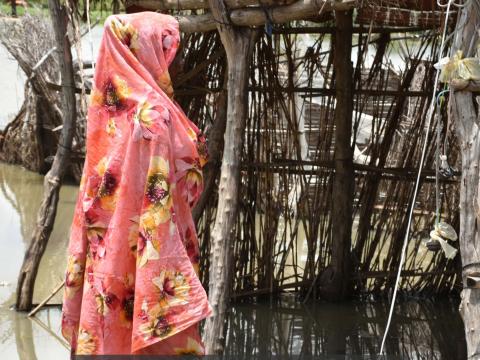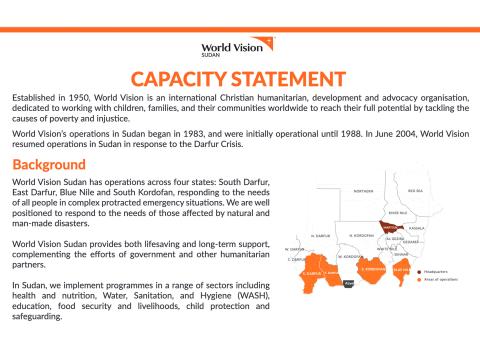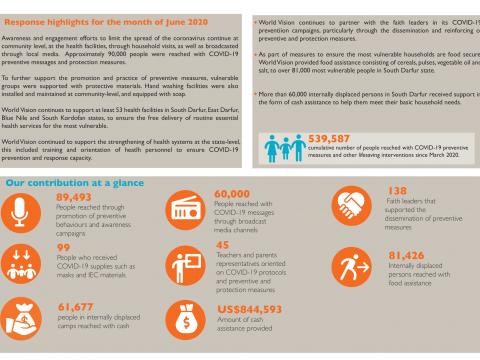Sudan Floods Response Appeal
Download
Months of heavy rains and flooding experienced across Sudan have left at least 100 people dead, destroyed livelihoods, and caused so much devastation. Official figures indicate that close to 900,000 people have been affected, nearly 60 percent of them children.
World Vision has launched a humanitarian response to assist more than 50,000 people in all four of its operational areas.
KEY MESSAGES
- The floods have devastated the country in the midst of economic challenges that have further compounded the situation for the affected households as they deal with, among other things, the high cost of food and medicines. According to the National Medical Supply Fund, the cost of health services increased by 90 percent and only 57 percent of essential emergency medicines were available by September. This is worrisome amidst the arrival of COVID-19, which has exacerbated these challenges.
- Livelihoods have been destroyed i.e. livestock and croplands swept away, further increasing the levels of food insecurity for children and their families, and eroding whatever food reserves or means of livelihood they have to support themselves. An estimated 9.6 million people already face food insecurity and in need of assistance. According to OCHA, approximately 500 square kilometres of land were submerged in Khartoum, White Nile states and Al Gezira, a key irrigation scheme.
- World Vision is most concerned about the wellbeing of children in the areas devastated by the floods, and more so in settings where populations are already vulnerable. Risks that children could be exposed to include deepened food insecurity in their households, exposure to disease infection common during the rainy season and also resulting from water contamination, and inconvenience to their education.
- World Vision is especially concerned about the risk of water-borne and vector borne diseases increasing, in the aftermath of the rains and that, amidst the coronavirus pandemic, and the further threat this poses to the affected populations, with children at even greater risk of disease infection. According to OCHA Sudan, 2,000 water sources have been destroyed in the floods or contaminated.
- Funding received has not reached the amount requested to facilitate the delivery of critical assistance including livelihoods restoration and risk reduction activities. Besides, a surging inflation is compounding the humanitarian needs in Sudan and negatively affecting the delivery of humanitarian aid.
To learn more: Read or download the attached publication.
Share


